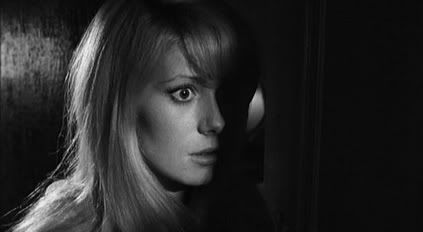Monday, December 12, 2011
Most Anticipated 2012
This is a premature list, and it will be subject to edit as the year goes on, especially since IMDB.com did not have any listenings past November. New Note: Anticipating of Films Will Shift Based on Trailers/Interest. Also * indicates that I have already seen a trailer/teaser for the movie.
1. Moonrise Kingdom*-93
2. Django Unchained*-100
3. The Dark Knight Rises*-95
4. Skyfall*-95
5. Prometheus*-92
6. The Hobbit Part 1*-88
7. The Hunger Games*
8. The Avengers*-87
9. Brave*
10. Cosmopolis*
11. The Woman In Black*
12. Lawless*
13. Dark Shadows*
14. Gangster Squad*
15. Total Recall*
16. The Amazing Spider-Man*
17. The Expandables 2*-80
18. Looper*
19. Killing Them Softly-92
20. Safety Not Guaranteed*-91
HMs:
1. Looking For A Friend For The End Of The World*
2. The Watch*
3. The Hunter*
4. Lockout*
5. Men In Black III*
6. The Campaign*
7. Argo-94
8. Taken 2
9. Gravity
10. American Reunion*-80
Thursday, December 8, 2011
You're Not Really Paranoid If They're Really After You

Considered part of an unofficial "Apartment" trilogy consisting also of Rosemary's Baby (1968) and The Tenant (1976), each of these movies not only features paranoia, but also focus on how close quarters can led to claustrophobic feelings, possibly ending in madness. Polanski is rather negative in Repulsion (1965), inferring in this trilogy that you cannot trust your neighbors or even close friends and family. He repeated this idea of "Trust No One" in some of his other movies, too, such as Chinatown (1974) and his latest, The Ghost Writer (2010).
The main underlying force in this film is sex-after all, the rather fragile and delicate female protagonist, Carole (played by Catherine Deneuve) has a truly warped view of reality. Her nightmares are disturbingly real, and therefore Polanski begins to slowly but surely blending fantasy and reality to accelerate the decaying of this girl's mind. She slowly descends into insanity, as the film never stops being terrifying or really lets up after this poor girl is left alone in the apartment she shares with her sister. Withdrawing into herself even further is just the final straw, as further exemplified by her failure to realize a potential suitor is not trying to murder her.
In a rather clever fashion, Polanski masks the true reasons for her behavior, never stating what ends up being rather obvious. The final act is fairly outlandish by necessity, signaling Carole's final break with what is true and what is false. It also includes a moment that is cruelly ironic, especially considering what previously transpired. In some ways her fears were justified, yet really they reflected a twisted version of feminist paranoia, where women must be on their guard against wolves in men's clothing.
Considering that the 1960s was the decade of Cold War fears of communist invasion and infiltration, plus nuclear annihilation, Polanski's films fit in quite well, which is a tad unnerving since they reflect a bleaker view of humanity. The fact that 1960s horror and suspense fixated on fear of the other, and mistrust of strangers is fascinating, perhaps reflective of that era and building on the previous decade's mistrust of anything different. 95
Subscribe to:
Posts (Atom)
